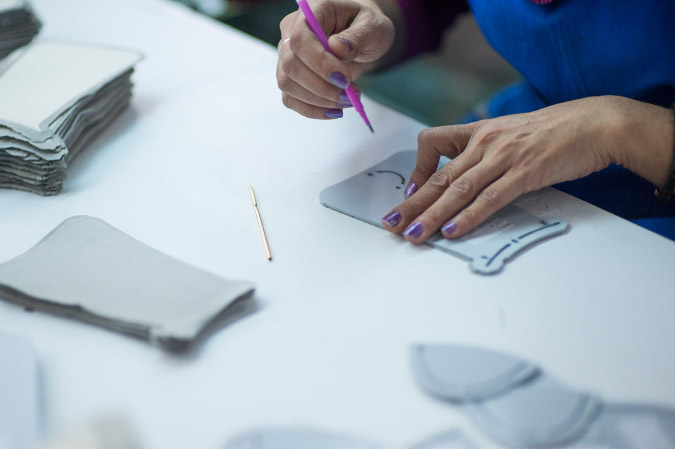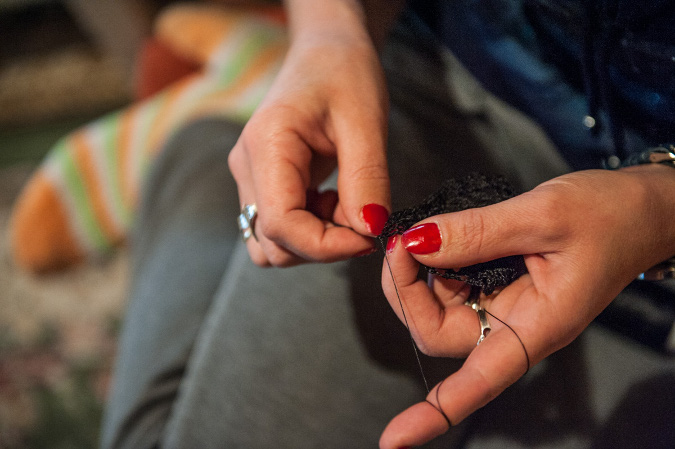Bosnian conflict-related sexual violence survivors learn business skills
A UN Women initiative provides survivors with psycho-social support and helps them develop the tools and skills necessary to secure their financial stability – and reintegrate into their communities.Date:

UN Women in Bosnia and Herzegovina (BiH) works to improve the care, justice and support of survivors of conflict-related sexual violence, many of whom still suffer from the aftermath of the crimes committed during the 1992-1995 war.
Survivors consistently express the need for better access to affordable and appropriate services like free legal advice, health care and economic opportunities. Creating economic opportunities for survivors of war crimes, including conflict-related sexual violence, is essential to reintegrate survivors into society and the economy.
Recognizing the need for economic empowerment, UN Women has through a joint programme of the UN in BiH, introduced economic empowerment as an innovative element in addition to the traditionally provided services such as judicial and psycho social support. As part of its work, UN Women has assisted survivors from Eastern Bosnia through an initiative that boosts their financial security and work opportunities. Economic empowerment transforms their standing and status within their families and communities even more than the call for criminal prosecution and the end to sexual violence.
The UN Women initiative, Seeking Care, Support and Justice for Conflict Related Sexual Violence Survivors in BiH, is funded by Government of the United Kingdom, Government of Canada and UN Action Against Sexual Violence in Conflict.
Aside from psycho-social support, UN Women provides the survivors with guidance to develop their own business plans to secure their future financial stability.
“This project has reunited my family,” said 66-year old Bojana, who was displaced after the war from her home, and her entire family left unemployed. “It has enabled me to develop a business plan so that everyone in my family participates equally. Sometimes they knock you down, but you get up even stronger.”

Through the UN Women project, women learn to assess their capacities and access resources as they develop their business plans. They gain skills to source equipment and other vendors that may be needed for their enterprises.
Behara, a 56-year old grandmother needed equipment to process fruit in her family’s orchard to make jams and other marketable products. She learned how to research and find affordable equipment, and create a longer-term plan to keep the business viable. “I feel empowered because my business plan will allow my family to live a decent life. We can now process our own orchards as well as others,” Behara said.
The project also helps women bring their products to market and guides them on how to link their enterprises to even larger markets. Women with only a limited opportunity for entering the dairy market can sell more milk through a local cooperative, for example, or women who make handicrafts can become part of larger value chains to increase their sales.
Slobodanka, a 41-year old mother of three has creative plans in mind for her business plan. She wants to open the first fitness club in her town by expanding the space of her husband’s karate club. By offering fitness, Pilates and aerobic classes, she hopes to make the space more female friendly. “This club will be the first of its kind and will mean a great deal for the women in our community,” said Slobodanka.